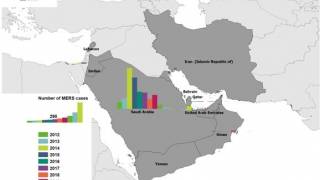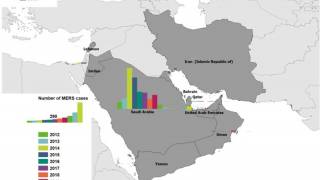Three More MERS Cases Reported

The World Health Organization (WHO) today announced three human cases, including one death, of Middle East respiratory syndrome coronavirus (MERS-CoV) by the Ministry of Health of the Kingdom of Saudi Arabia (KSA).
According to the WHO's Disease Outbreak News on May 8, 2024, all three cases were middle-aged males with underlying health conditions.
The three cases are epidemiologically linked to exposures in a Riyadh healthcare facility, although investigations are ongoing to verify this and understand the transmission route.
In 2024, a total of four cases and two deaths have been reported from the KSA.
MERS is a viral respiratory infection caused by the MERS-CoV. Humans are infected with MERS-CoV from direct or indirect contact with dromedary camels, the virus's natural host and zoonotic source.
So far, non-sustained human-to-human transmission has occurred among close contacts and in healthcare settings. However, the WHO reports limited human-to-human transmission outside of healthcare settings.
Since 2012, when the first MERS-CoV case was reported in KSA, 2,613 MERS-CoV cases and 941 deaths (36%) have been reported from 27 countries in all six WHO regions.
Fortunately, no MERS-CoV cases have been reported from countries outside the Middle East since 2019.
The notification of the new cases does not change WHO's overall risk assessment, which remains moderate at both the global and regional levels.
As of May 9, 2024, no approved MERS vaccines are available.
However, in late 2023, Barinthus Biotherapeutics plc, the Coalition for Epidemic Preparedness Innovations, and the University of Oxford collaborated on fast-tracking the development of the VTP-500 vaccine candidate.
This $34.8 million project intends to take this MERS vaccine through Phase II clinical trials.
Our Trust Standards: Medical Advisory Committee























